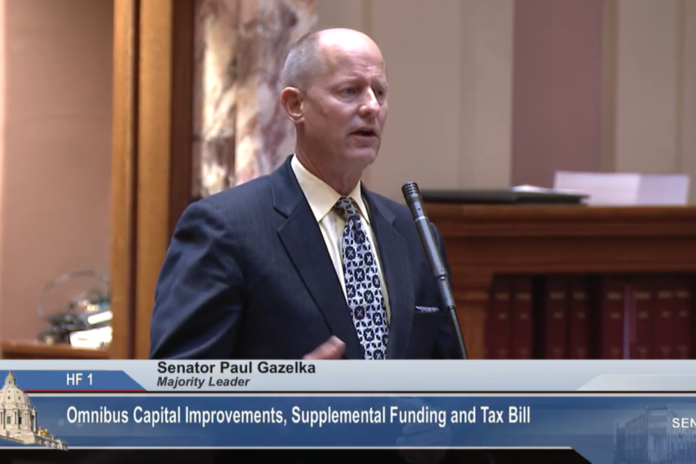(The Center Square) – After a six-month stalemate in the Capitol, the Minnesota Senate on Thursday approved a $1.9 billion bonding package that’s now on its way to Gov. Tim Walz.
The House passed the bill in a late-night session Wednesday and adjourned sine die, leaving the Senate to either approve the bill as-is or spike it.
Some Republicans showed their disdain for the tactic. Sen. Roger Chamberlain, R-Lino Lakes, compared the legislation to drinking rancid milk.
“It’s akin to taking a chug from a gallon of milk and realizing it’s rancid and it automatically just naturally, impulsively expels from your mouth,” Chamberlain said on the floor.
The bill calls for $1.37 billion in borrowing for public works projects.
Sen. Sandy Pappas, DFL-St. Paul, applauded the bill, saying it would touch every Minnesotan.
“If there was ever a time to pass a robust bonding bill, it’s now. Passing a bonding bill will help address the need for infrastructure improvements and create the local jobs and economic stimulus our state needs during the COVID-19 pandemic,” Pappas said in a statement.
About $200 million in tax cuts for farmers and businesses lured in Republicans who otherwise sounded alarms about piling debt onto an already looming deficit.
“Farmers and small businesses are the backbone of our economy,” Senate Majority Leader Paul Gazelka, R-East Gull Lake, said in a statement. ”Chapter 179 conformity will allow them to invest in their operations and keep growing their business in these challenging times.”
The plan would shell out $7.5 million to keep two state prisons in Togo and Willow River open, $75 million to the University of Minnesota, $90 million to Minnesota state colleges and universities, and $116 million to affordable housing projects.
“This bonding bill is a smart investment that will create thousands of good-paying jobs, deliver improvements to local projects throughout Minnesota, and make our state a better place to live,” Walz said in a statement. “It’s been a long journey. By finally coming together and working across the aisle, Minnesota proved once again that if Washington won’t lead – we will.”
Sen. Jason Rarick, R-Pine City, warned that while the bonding bill is a “good investment,” it will lead to ramifications in large government cuts in the future to deal with a looming deficit.
The debt service for the General Obligation bonds alone is $1.13 billion over fiscal years 2020-21 and $1.28 billion for fiscal years 2022-23.
Minnesota has a projected $4.7 billion deficit for the fiscal years 2022 and 2023.

















